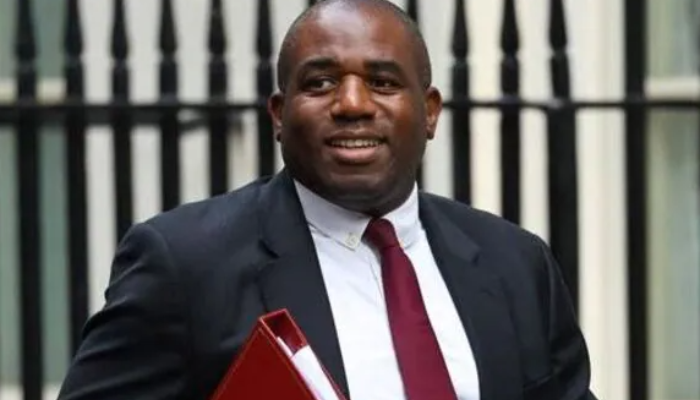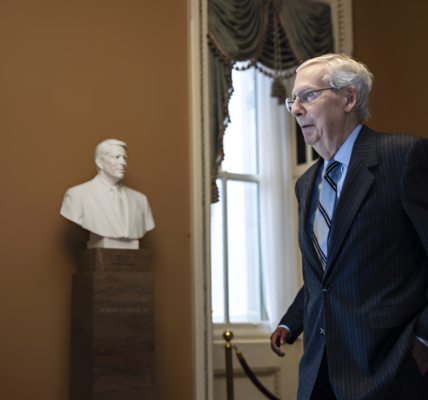U.K. Foreign Secretary David Lammy made a significant statement regarding the ongoing efforts of the United Kingdom and the United States to secure a lasting ceasefire between India and Pakistan. This move follows the recent escalation of tensions between the two nations, sparked by a terrorist attack in Jammu and Kashmir. Lammy’s comments underline the diplomatic role that both the U.K. and U.S. are playing in promoting peace and stability in the region, particularly in light of the volatile situation in Kashmir.
U.K. and U.S. Collaboration for a Sustainable Ceasefire
The recent surge in hostilities between India and Pakistan has prompted immediate international concerns, especially after the tragic terrorist attack in Pahalgam, Kashmir, on April 22, 2025, which led to the death of 26 civilians. Following the attack, both nations engaged in rounds of armed conflict, exacerbating the already tense situation in the region.
David Lammy, while on his two-day visit to Pakistan, emphasized that the U.K. and U.S. are working together to ensure that the ceasefire between the two countries remains enduring. Lammy’s statement echoes the message frequently conveyed by U.S. President Donald Trump, who has previously indicated that his administration played a key role in facilitating the ceasefire agreement.
“We will continue to work with the United States to ensure that we get an enduring ceasefire, to ensure that dialogue is happening and to work through with Pakistan and India how we can get to confidence and confidence-building measures between the two sides,” Lammy told Reuters during his interview in Islamabad.
Importance of Dialogue and Confidence-Building
Lammy’s remarks underscore the need for continued dialogue between India and Pakistan to foster mutual trust and confidence. He stressed that one of the primary objectives of the U.K. and U.S. efforts is to create a platform for open communication and to engage both governments in confidence-building measures. These measures aim to reduce the likelihood of future conflicts and help establish a more stable relationship between the two nuclear-armed neighbors.
The international community has repeatedly called for de-escalation in the region, with both sides often engaging in military skirmishes. The recent conflict highlights the volatility of the Kashmir issue, a long-standing territorial dispute between India and Pakistan, which has been a point of contention for decades.
The Role of the U.K. and U.S. in South Asian Peacekeeping
The U.K. and U.S. have consistently supported peace efforts in South Asia, recognizing the broader implications of a potential escalation between India and Pakistan. Lammy’s visit to Islamabad is part of a continued effort to engage directly with both Pakistan and India to encourage dialogue and negotiation. The U.K. has long played a diplomatic role in South Asia, owing to its historical ties with both countries, while the U.S. remains an influential global power with strategic interests in the region.
The international push for a sustained ceasefire comes amid growing concerns that any escalation could lead to further casualties and destabilization in the region. The diplomatic pressure from the U.K. and U.S. is crucial in maintaining the momentum for peace.
Challenges Ahead for India-Pakistan Relations
Despite the ceasefire, several hurdles remain in the path to long-term peace between India and Pakistan. The Kashmir issue, which continues to be a source of tension, requires careful and sensitive handling. Both nations have divergent views on how to address the dispute, making it a complex challenge for international mediators.
In addition, the historical distrust between the two countries, combined with ongoing security concerns, makes confidence-building an intricate task. Lammy’s focus on creating a platform for dialogue and promoting confidence-building measures will be essential for laying the groundwork for a sustainable peace process.
Conclusion
As the U.K. and U.S. continue to work together for a lasting ceasefire between India and Pakistan, it is clear that the international community plays a vital role in mediating tensions and fostering dialogue. David Lammy’s remarks highlight the commitment of both nations to ensuring stability in South Asia. However, achieving long-term peace will require the active participation of both India and Pakistan, with the support of the global community to encourage a diplomatic resolution to the Kashmir conflict.
The road ahead may be challenging, but with continued international cooperation and commitment, the prospects for a durable and peaceful resolution appear within reach.





